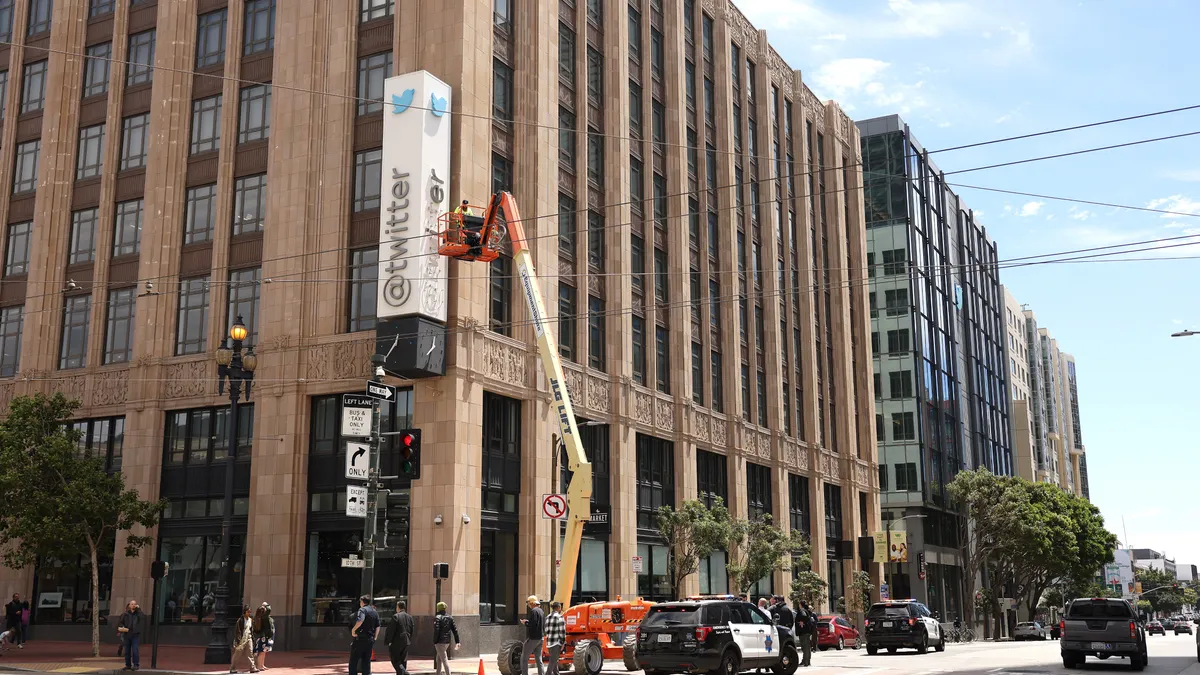Many law firms have recently advised employers to review and take steps to comply with the National Labor Relations Board’s February ruling that took issue with severance agreements a Michigan hospital offered to furloughed employees.
In its McClaren Macomb decision, the NLRB determined the severance agreements at issue were unlawful because the confidentiality and non-disparagement provisions would force employees to waive rights under the National Labor Relations Act (NLRA).
But lawyers at Baker McKenzie, one of the largest global law firms, said the implications for employers from the overruling of Trump-era precedent may not be as significant as others have indicated.
“At first blush, this may feel like a sweeping change requiring immediate action,” the attorneys wrote on Baker McKenzie’s Employer Report blog. “However, it is important to consider this decision with a grain (or two) of salt, breathe and thoughtfully plan your next steps.”
Low risk
The firm’s lawyers suggested one reason the NLRB’s action should be viewed in a less-urgent light is that for most private, nonunion employers “the risk of an unfair labor practice charge is relatively low.”
Even though the National Labor Relations Act applies to most private-sector employers, they said, the NLRB and unions tend to put their focus more on unionized workplaces.
“Given the lower risk for nonunion workplaces, we suspect many employers will take a wait and see approach,” the Baker McKenzie attorneys wrote.
Along those lines, employers may wait to see if the decision is challenged in court, or if there are further developments or clarifications of its scope, they said.
Possible remedies
Additionally, the firm’s lawyers said, the NLRB has “limited remedies available” to enforce the McLaren Macomb decision.
“Where the sole unfair labor practice is the proffer of a severance agreement with an “unlawful” confidentiality or non-disparagement provision, the remedy would be limited to the rescission of the unlawful provision and posting of a notice that the employer will cease and desist from including such provisions in future severance agreements,” the attorneys said.
In the McLaren Macomb case, the Michigan hospital was ordered to cease and desist from presenting furloughed employees severance agreements with the non-disparagement and confidentiality language the board found unlawful, among other remedies.
However, attorneys at Littler wrote in an online alert about the McLaren Macomb case that employers can “count on” the NLRB ordering additional remedies in future cases involving severance agreements.
These other remedies could include orders to rescind or revise provision(s) in agreements employees have signed, as well as orders to cease any enforcement action(s) the employer has taken regarding the severance agreements.
Expanded relief for employees
Additionally, the Littler lawyers highlighted a December 2022 decision involving Thryv Inc. in which the NLRB expanded the relief available to workers who allege unfair labor practices by their employers.
In that decision, the NLRB indicated it could order employers to pay for any “direct or foreseeable pecuniary harms” incurred by employees as part of the standard, make-whole remedy for labor law violations.
“For example, where an employer has filed a court or other action to enforce an unlawful agreement, the Board may order the employer to pay attorneys’ fees and other fees or costs incurred by [the] employee in defending the action,” the Littler lawyers wrote in the recent online alert.
The Baker McKenzie lawyers acknowledged the NLRB’s recent expansion of so-called “consequential damages,” but said there wouldn’t be any monetary damages available “absent an enforcement effort by the employer” regarding a severance agreement.
“In theory, the Board could rescind the full agreement, but it is unlikely that the Board would invalidate the release or order the employee to return the severance payment,” the lawyers wrote.
Risk tolerance
Overall, the Baker McKenzie lawyers said, the approach employers ultimately decide to take in response to the McLaren Macomb decision will depend on the type of workforce they have, their risk tolerance and what they are trying to protect.
Employers with a unionized or partially unionized workforce face higher potential risk, they said.
“For very risk-adverse organizations, the most conservative approach is to remove non-disparagement and confidentiality provisions that prohibit: (1) making statements that could disparage or harm the image of the employer and (2) disclosing the terms of the agreement,” the attorneys wrote.


















